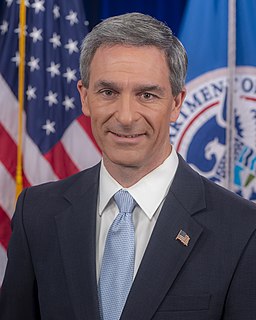A Quote by Max Baucus
If Congress can strip the federal courts of jurisdiction over school prayer cases, there is no provision in the Constitution immune from congressional tampering.
Quote Topics
Related Quotes
Gorsuch, who is a U.S. Supreme Court nominee in the United States, said the real test of law is when a government can lose in its own courts and still respect the order. And I think Canadian need to ask is why would Canada, if it's doing everything right, why wouldn't you want to be watched? If they are contesting the fact that their own courts don't have jurisdiction over the government's human rights violations, then our next step is to go to federal court and find the federal government that can come to court and we will do that.
You need to fight cases in the courts, but you certainly cannot rely on the courts, you need to testify in Congress and lobby your Congress person, but you certainly cannot rely on Congress. You need to speak out in the media, but you cannot totally trust the media either. You need to work within the academy because that's an influential opinion body. I think that one of the lessons that people have learned in the civil rights community is that it is generally not enough to focus on litigation in the courts.
The states have authority to interpret the Constitution, enforce it, and protect the people from violations of it by the federal government In the first place, there is not a syllable in the plan under consideration which directly empowers the national courts to construe the laws according to the spirit of the Constitution, or which gives them any greater latitude in this respect than may be claimed by the courts of every State.
The germ of dissolution of our federal government is in the constitution of the federal judiciary; an irresponsible body, (for impeachment is scarcely a scare-crow) working like gravity by night and by day, gaining a little today and a little tomorrow, and advancing its noiseless step like a thief, over the field of jurisdiction, until all shall be usurped from the States, and the government of all be consolidated into one.
Let's put it in perspective at the United States Supreme Court, which hears maybe 60 cases a year, most of the cases are resolved without much dispute. The 10 or 15 that are controversial we all know about, and we hear about. The federal courts hear just a tiny sliver of the cases that go to court in this country. Most of the cases are in the state courts. And most legal issues never go to court. So, the legal system is actually not in jeopardy. At the same time, access to law is in jeopardy.

































